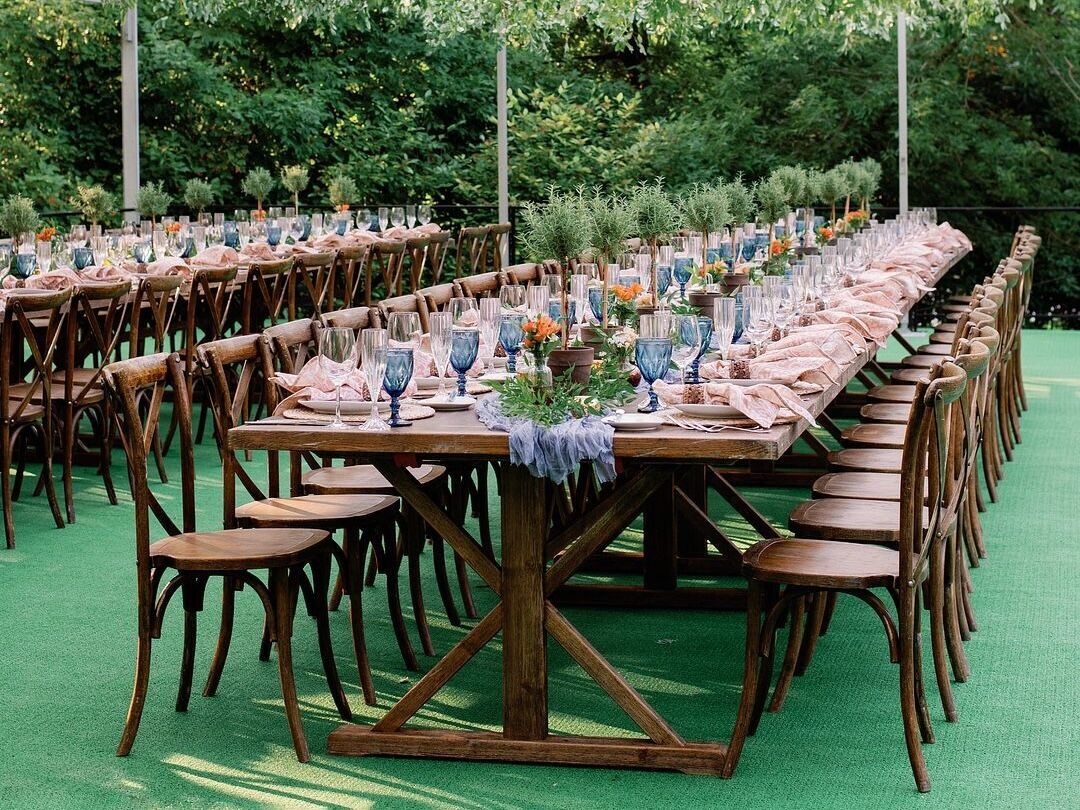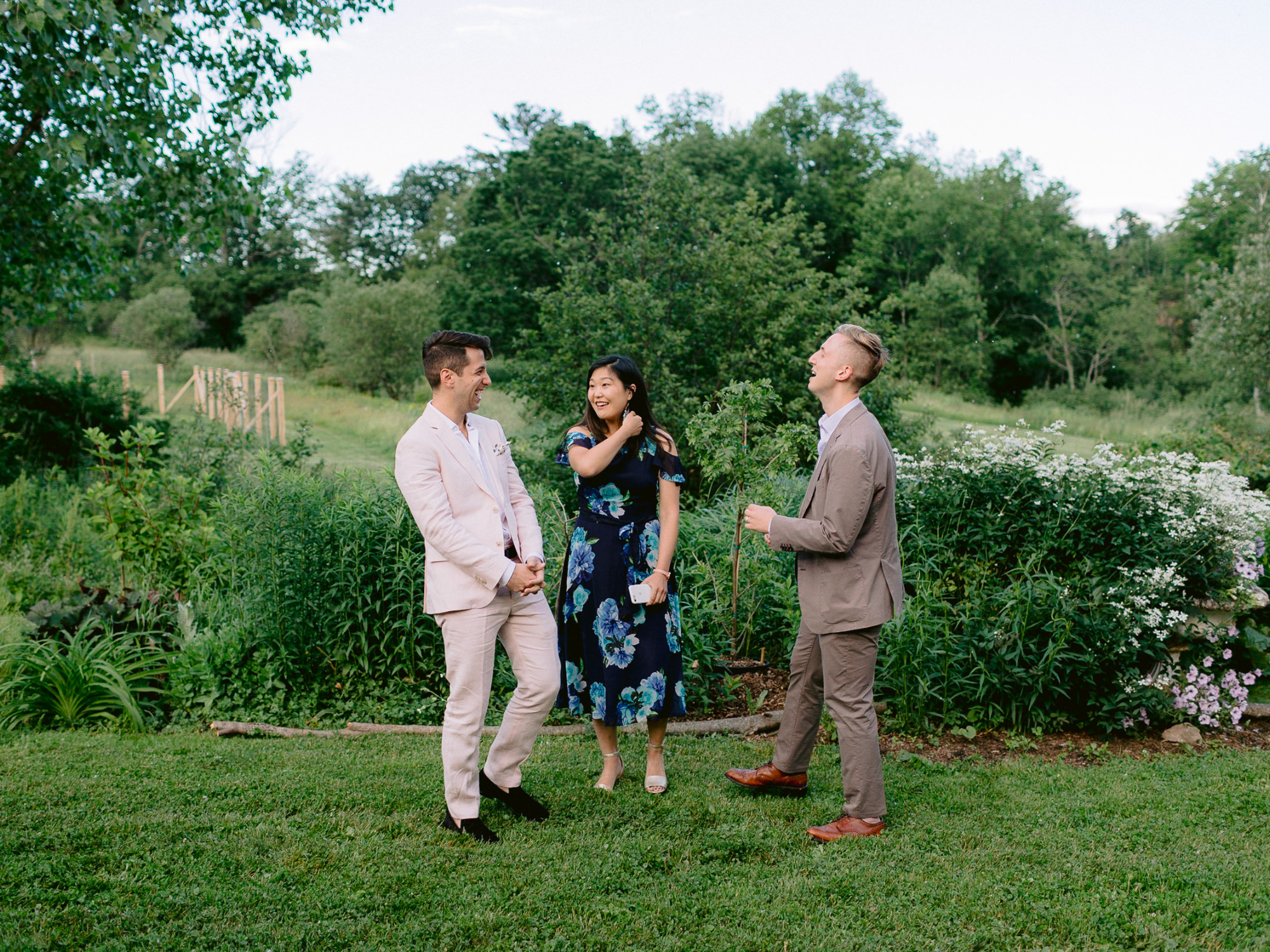Do Plus-Ones Go to the Rehearsal Dinner? The Tea You Need to Know
There are many sensitive topics in wedding planning, and most of them revolve around narrowing down the guests list to avoid creating tension or drama. Though this is most heated with the official wedding invite list, it extends to other events, like the rehearsal dinner. Traditionally hosted by the groom's family, this wedding-eve supper typically includes the wedding party, close family and out-of-town guests—but do plus-ones go to the rehearsal dinner? And if you don't have the budget to cover your loved one's dates, how do you communicate that effectively and kindly? Here, we spoke with wedding experts on the 101 of rehearsal dinner plus-ones.
In this article:
- Are Plus-Ones Invited to the Rehearsal Dinner?
- Where to Seat Plus-Ones at the Rehearsal Dinner
- How to Communicate If Plus-Ones Aren't Invited
Are Plus-Ones Invited to the Rehearsal Dinner?
Unfortunately, there is no clear-cut, one-answer-fits-all to this question. Sometimes, plus-ones are included, and other times, they're not. Often, the deciding factor is the capacity of the rehearsal dinner venue or budget, according to wedding planner Juls Sharpley.
"If you simply don't have the space or budget to accommodate plus-ones, then you can't include them," she says. "However, if you have the space, you may still choose to draw a line defining when a plus-one would be included."
As with all aspects of joining two families together, there are nuances to consider. Sharpley says many couples will say that if the attendee is married or engaged, the plus-one will be allowed, but if they do not meet either of those criteria, they are not. Or a couple may give a pass to this guideline if they really want a friend to feel welcome.
Ultimately, couples want the rehearsal dinner to be a more intimate gathering of their closest family and friends, and sometimes, hard decisions have to be made to serve the couple's needs and financial restraints or avoid conflicting personalities to protect the peace of the evening.
Where to Seat Plus-Ones at the Rehearsal Dinner
If you do decide to welcome plus-ones for your rehearsal dinner guests, it's best to seat them next to one another, according to wedding planner Kristy Diana and the founder of LOLA Event Productions.



Not only do people typically have more fun sitting with their significant other, but your wedding party will likely be away from their partner the majority of the following day, getting ready with you, taking photos, and focusing on you. "As much as the wedding weekend is about you, this is a great time for couples to have fun celebrating and raising a glass to you together," Diana says. "With rehearsal dinners tending to be a bit less formal than the wedding reception, this is also a good time to make sure people feel comfortable and at ease."
How to Communicate If Plus-Ones Aren't Invited
Whether your budget is limited, you want an intimate event, or your friends just don't have the best taste in dating partners, it's okay to omit plus-ones from the rehearsal dinner. However, you do need to pay close attention to how you deliver this information—and be prepared to answer a lot of questions. Here's how:
Use names on invites.
The best way to communicate if plus-ones are or aren't invited is by wording the envelope of your invitation, according to Nora Sheils, the co-founder of Rock Paper Coin and the founder of Bridal Bliss. Either it says the person's name "and guest," or it doesn't. "If someone doesn't take note and, in turn, responds with a guest, that is a great place to have a planner step in and make a phone call on the couple's behalf," she adds.
Be very clear to avoid ruffling feathers.
Diana says to set clear lines on who is and isn't included to avoid hurt feelings. This is particularly true since it can ruffle some feathers if one bridesmaid's guest is invited and the other is not. "If only out-of-town family members are invited, but out-of-town friends are not," she continues. "Where you draw your lines will be a personal decision based on the capacity of the venue, budget and how big of a to-do you want this to be." Whatever makes your choice for you, communicate it clearly with no questions left unanswered.
Offer a consolation or compromise.
If you're still feeling uneasy about not inviting plus-ones, you could offer a consolation or compromise, even though it's not necessary, according to wedding planner Jacqueline Vizcaino, the owner of Tinted Events Design and Planning. She says you can send a token of appreciation to the invited person for the one not attending with a note that says, 'Looking forward to sharing our wedding day with you.' You may also invite them to a post-wedding-after party or a next-morning brunch send-off.





















